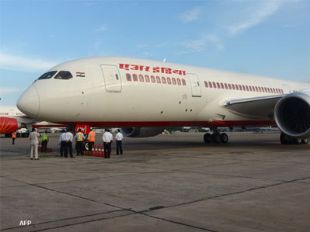
New Delhi, Feb 6: Concerned over empty flight seats, the government has asked Indian carriers why could they not charge low spot fares so that about 30 per cent of their seats do not go vacant.
Observing that highly exorbitant rates were being charged closer to the travel dates, Civil Aviation Ministry officials, however, made it clear that the government had no intention to decide airfares which have to be determined by the market.
They pointed out that the average passenger load factor for all Indian airlines hovered around 70-75 per cent, implying that the remaining seats on a flight go empty. The officials, at a meeting of the Civil Aviation Economic Advisory Committee on Monday, suggested that the airlines could charge last minute spot-fares at low fares to fill up their seats.
Maintaining that the government would not determine airfares, they said the ministry and aviation regulator Directorate General of Civil Aviation (DGCA) would continue to closely monitor the movement of airfares, particularly to check both predatory and exorbitant pricing.
The meeting came in the backdrop of a Supreme Court directive last month to DGCA to examine the tariff structure of Indian Airlines in view of the wide range of the base prices of air tickets.
The apex court had expressed concern over the massive differential between the lowest and highest air fares on the price bands.
DGCA sources said efforts would be made to compress these wide price bands, ranging from 12 to as high as 22 set by different airlines on each sector, and make air fares more transparent so that the travelling public was clear about the cost of travel.
While there was a need to make the price bands more transparent, there should also be some rationale behind the huge differences between the highest and the lowest air fares in these price bands, they said. Justifying the high price bands, airline industry sources said that they have to take into account, apart from the actual costs of air travel, the variable costs on inputs like jet fuel, whose prices continue to rise, and staff costs.








Comments
Add new comment